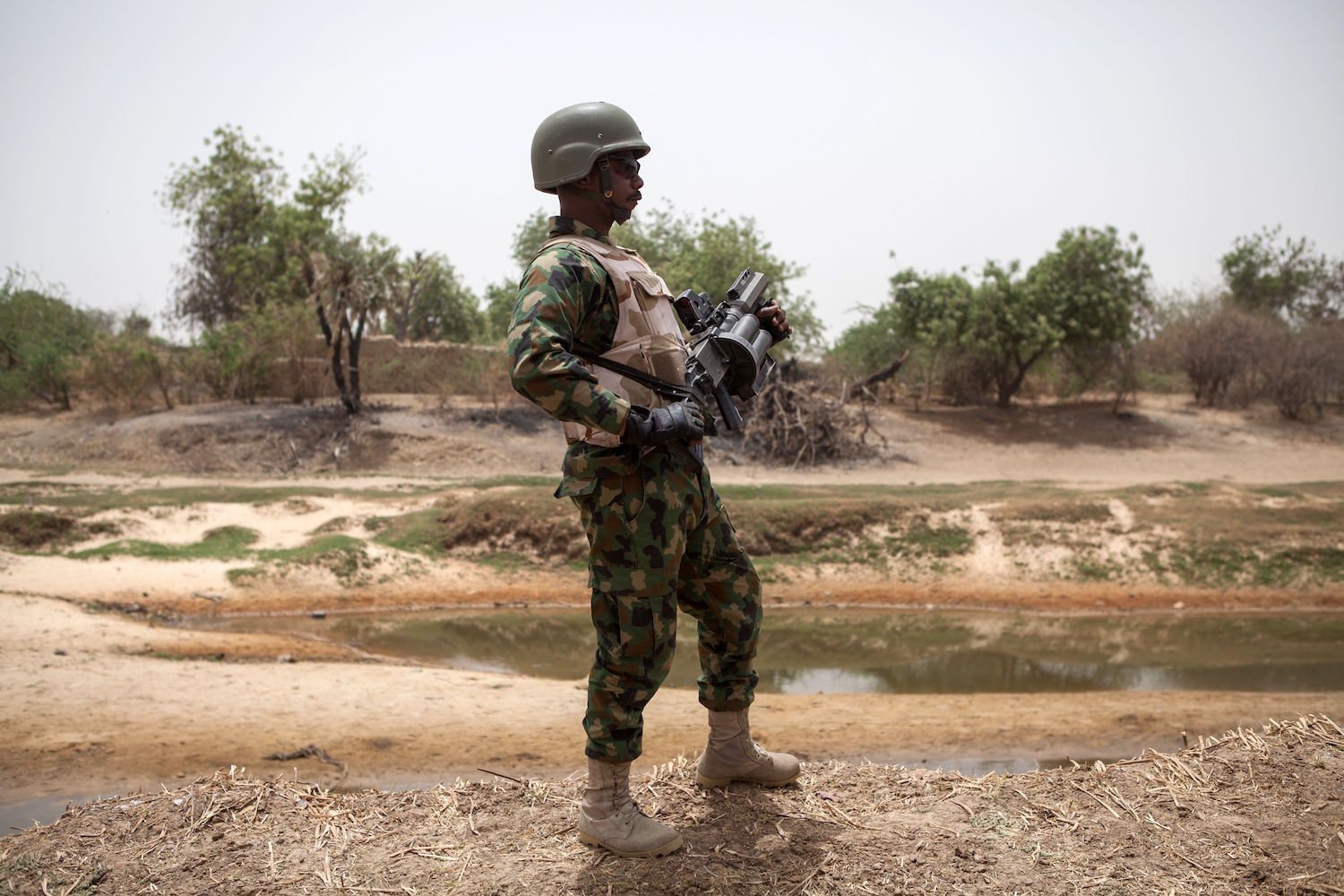
Mohammed Yusuf, the founder of the Nigerian Islamist militant group who died in police custody in 2002, will now have his home converted into a museum for educational purposes, the Nigerian government announced on Tuesday.
The new institution will be a way of “documenting, preserving and archiving our history” said Muhammad Bulama, state information commissioner of northeast Nigeria’s Borno region, in a statement, as reported by Agence France Presse.
Children stand near the rubble of a burnt house after Boko Haram attacks at Dalori village on the outskirts of Maiduguri in northeastern Nigeria on January 31, 2016.
Photo courtesy of AFP/Getty Images.
“The Boko Haram insurgency is a turning point in the history of Borno state and the northeast,” he added. “Our history cannot be written without reference to Boko Haram.”
A Muslim preacher, Yusuf founded Boko Haram out of his home and mosque in Maiduguri in 2001, decrying Western education and attracting many young followers. The group launched its military activities in 2009, with the aim of creating an Islamic state. It has been responsible for terrorist activities throughout the region, including the capture of over 200 schoolgirls from Chibok in 2014. The conflict between Boko Haram and government forces has claimed more than 20,000 lives.
People from the Nigerian town of Malam Fatori an its area, close to the borders with Niger and Chad, pass by a car with Chadian Gendarmes (in uniform) as they flee Islamist Boko Haram attacks to take shelter in Niger. Photo courtesy of Issouf Sanogo/AFP/Getty Images.
Yusuf’s home was destroyed by the government during military operations in 2009, but the plan is to rebuild it. Though some are worried the move risks immortalizing him, Bulama was quick to discount the possibility, citing “global practice” to set up museums “wherever violent upheavals” take place.
“His preserved home could morph into a shrine of sorts for followers of the radical sect,” wrote Yomi Kazeem for Quartz.
A Nigerian soldier, with a grenade launcher, stands guard near the Yobe river, that separates Nigeria from Niger, on the outskirt of the town of Damasak in North East Nigeria on April, 25 2017 as thousands of Nigerians, who were freed in 2016 by the Nigerian army from Boko Haram insurgents, are returning to their homes in Damasak.
Photo courtesy of Florian Plaucheur/AFP/Getty Images.
The Austrian government scuttled similar plans to turn Adolf Hitler’s birthplace into a museum, seizing the property over fears that it could become a site of pilgrimage for Neo-Nazis. Similarly, the Pakistani government demolished the Abbottabad compound where Osama bin Laden was killed in 2012. The Al Qaeda leader was buried at sea.
Nigerian newspaper Leadership also decried the plan, calling it “a bad idea that is akin to documenting and preserving a nightmare.”
“The museum, if established, will become a source of inspiration to those who are pre-disposed to violence of the type that Boko Haram unleashed on the country and there are many—pushed to the brink by religious fanaticism and egged on by bigots intent on causing mischief,” the editorial continued, calling for the money earmarked to build the museum to be spent instead on schools, health care, and assisting those displaced by Boko Haram.